July 2025
THE PHAHAMA GRAIN PHAKAMA (PGP) FARMER DEVELOPMENT PROGRAMME (FDP) IS A COMPREHENSIVE AGRICULTURAL DEVELOPMENT INITIATIVE FOCUSSED ON SUPPORTING GRAIN FARMERS IN SOUTH AFRICA, FROM SUBSISTENCE TO COMMERCIAL LEVELS. IT AIMS TO EMPOWER FARMERS WITH THE KNOWLEDGE, SKILLS AND RESOURCES THEY NEED TO PRODUCE GRAIN PROFITABLY AND SUSTAINABLY, ENSURING OPTIMAL YIELDS.
Grain SA and PGP have been dedicated to the sustainable development of farmers from subsistence to commercialisation since the early 2000s. The team’s primary aim is to assist active grain farmers in growing grain profitably, using the best available technologies and practices for sustainability. The programme offers a tailored roadmap for each farmer, providing up-to-date information through various channels such as farm visits, study groups, training sessions and the monthy edition of the Pula magazine.
METHODS AND STRATEGIES
Key development activities that take place regularly are:
MONTHLY FOCUS ON FARM VISITS
During the 42 farm visits that occurred between 7 April and 9 May, crop inspections and yield estimations were conducted to ensure that the marketing of crops was done correctly and on time. Apart from two farm visits in the Lichtenburg region, farmers in these regions also benefitted from the team’s visits.
Nine visits to six different farmers, which included these visits by mentor Paul Wiggill:
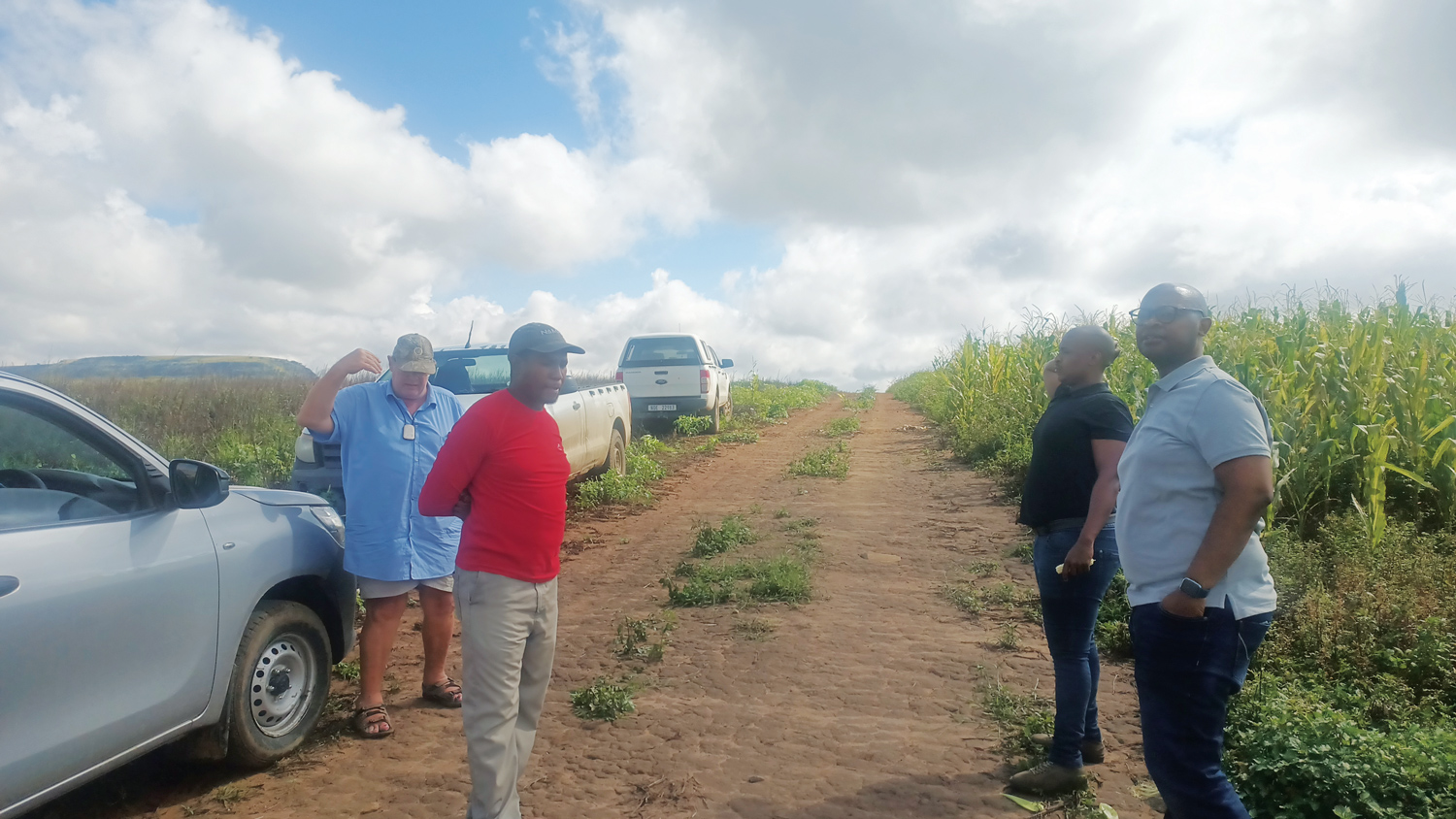
During a visit to farmer Philani Khoza, the progress of the crops were assessed. Philani had the opportunity to ask questions about contracts and where to take his produce after harvesting.
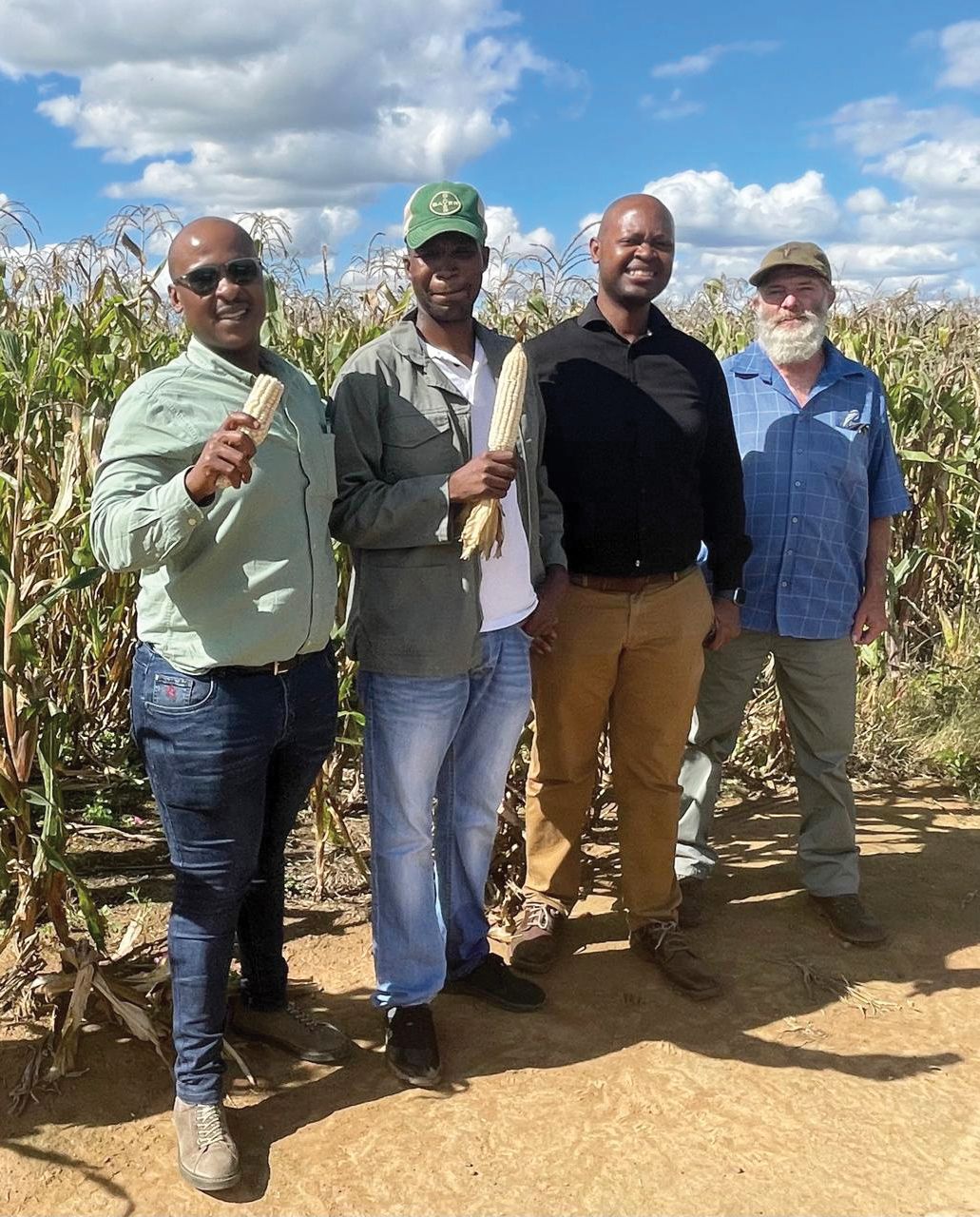
Farmer TR Shelembe was advised to repair his roads to ensure that the combine could reach his lands without getting stuck. Mentor Paul Wiggill also instructed him to mow the weeds on the edges of the lands before harvesting.
In the Free State, eleven farmers benefitted from the team’s expertise through 18 farm visits.
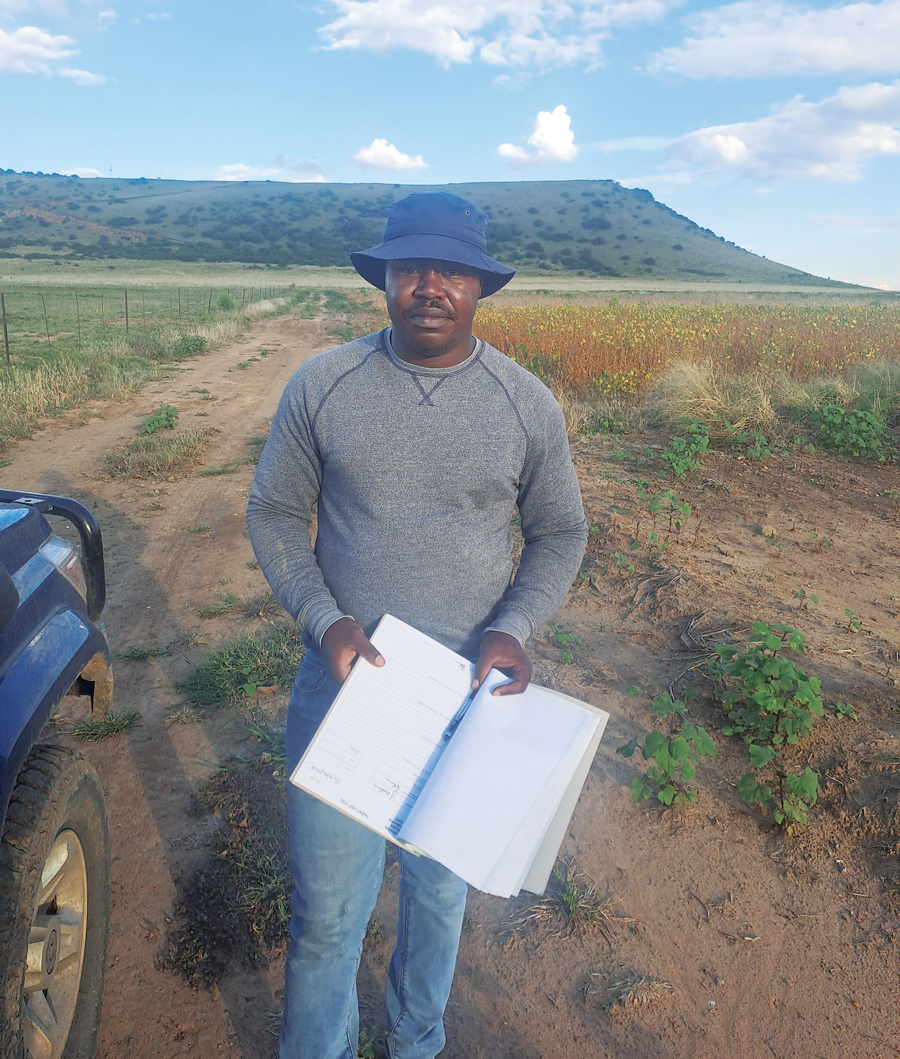
For farmer Jabu Matshinini, the challenges in agriculture became a reality this season. Due to the high rainfall in the area, his sunflower plants were falling, which caused a huge loss. The constant rain also caused the soybean crop to dry off much slower, but it could be a record yield if the rains subside and the crop can be harvested.
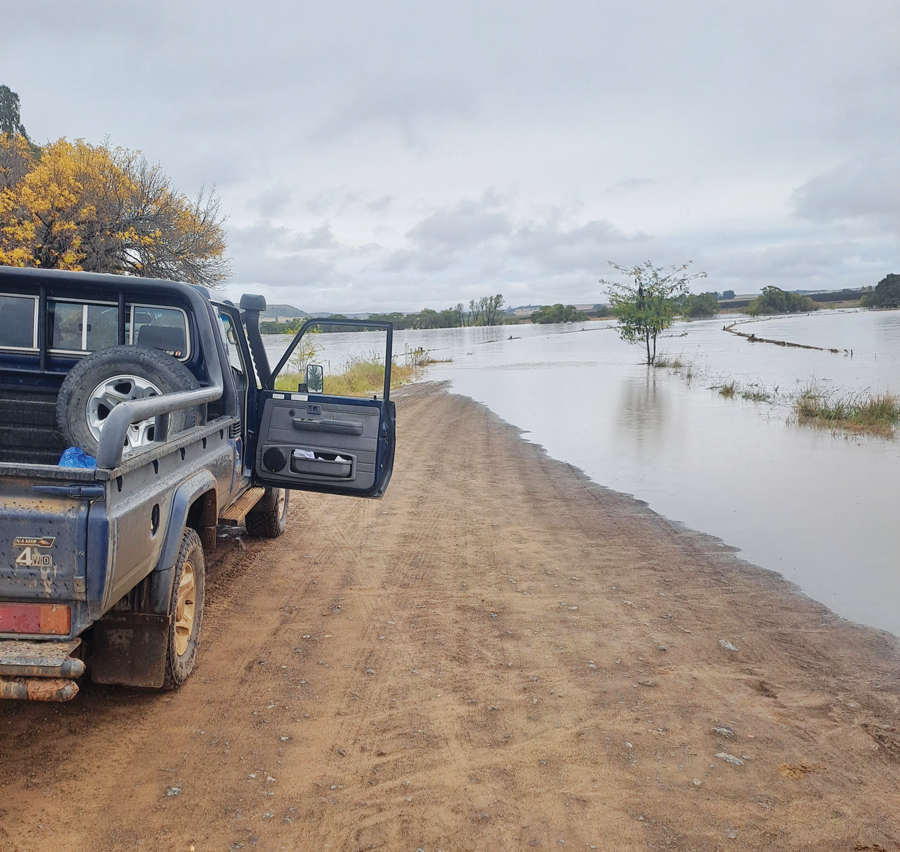
When Jacques Roux went to check on farmer Jabu on 23 April, he had to turn back as the farm was inaccessible due to flooding.
Six farmers in the Louwsburg area received farm visits, making it a total of 13 visits in this region.
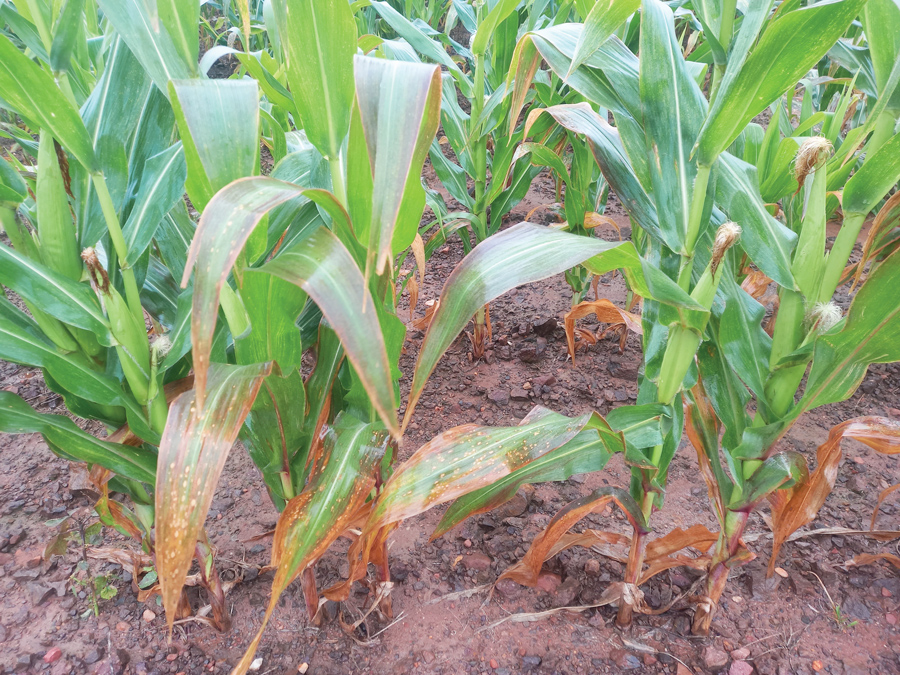
Mentor Chris de Jager found some leaves of the maize crop showing nutritional deficiencies. Chris showed Andile and his workers how to take soil samples to correct the soil fertility.
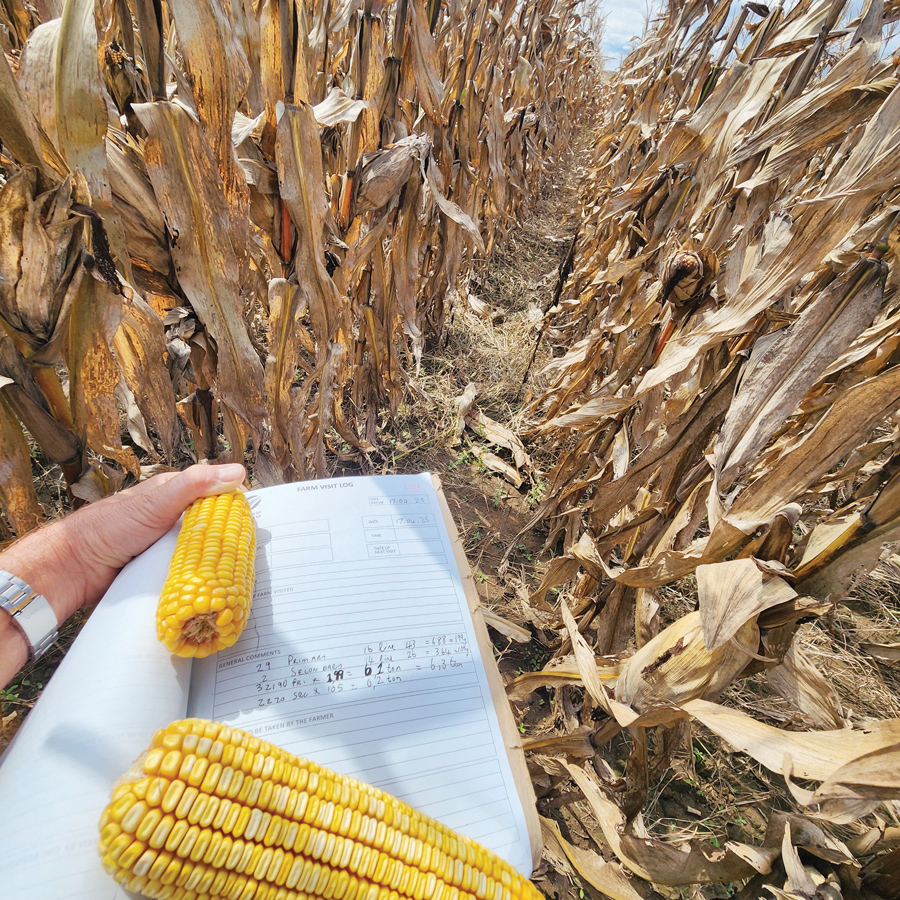
Timon Filter, mentor in the Louwsburg region, visited farmer Mlotshwa Mfanimpela to ensure their timing was right to harvest his maize. A crop estimate showed that the farmer can expect about 6,3 t/ha.
In the same period, the team also visited 55 study groups. These meetings offer smaller farmers a wonderful opportunity to share their farming joys and frustrations and increase their knowledge. Ten study group visits were done in Mthatha and seven in Mbombela. Here are some moments captured during some of the other group visits.
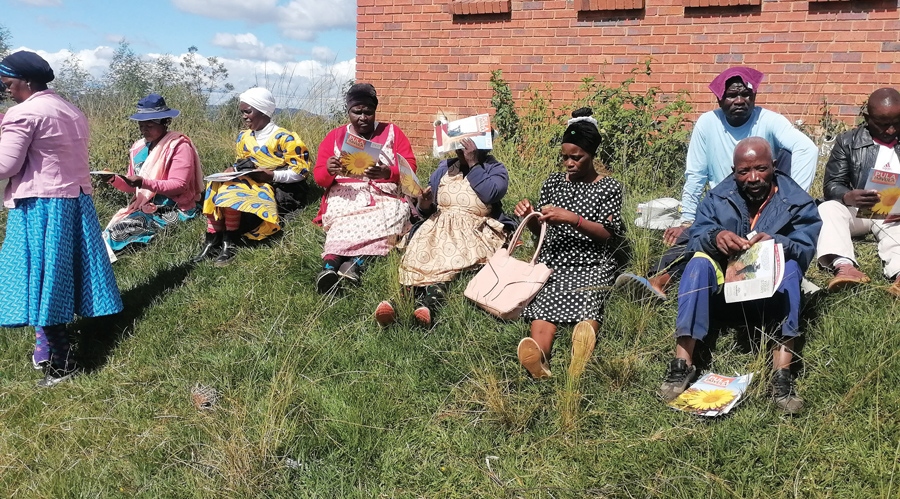
The important role of study groups, which is sharing information, was clear at the Emmaus Study Group meeting. Farmers shared information about the safe storage and preservation of crops, and suitable local marketing options.
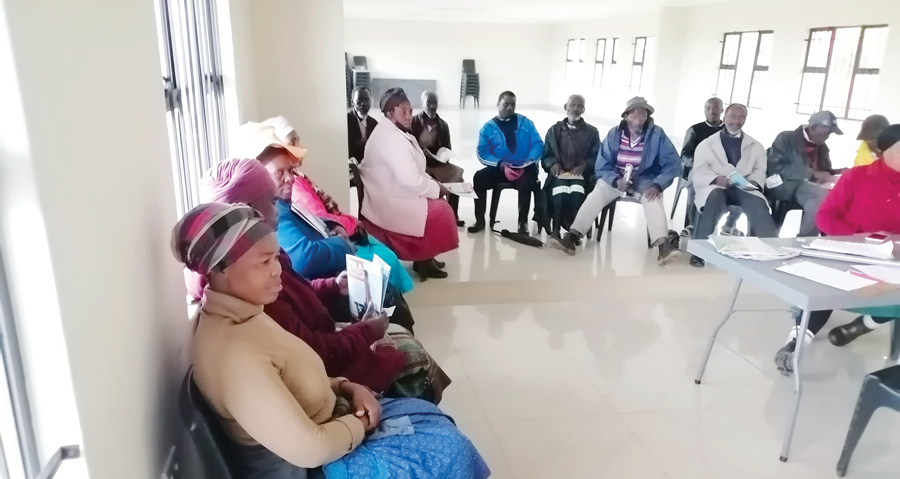
Due to bad weather conditions, only a few farmers attended the Donkerhoek Study Group meeting. Many of the farmers would appreciate field visits. They also discussed the effect of the high rainfall on their maize crop.
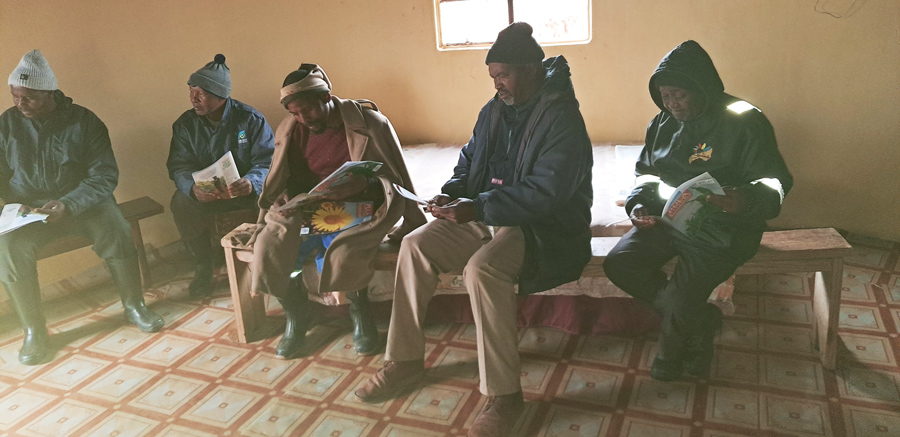
Mentor Johan Nel visited the Hlankomo Study Group, where he gave training on measurements and the use of pre-emergence chemicals.
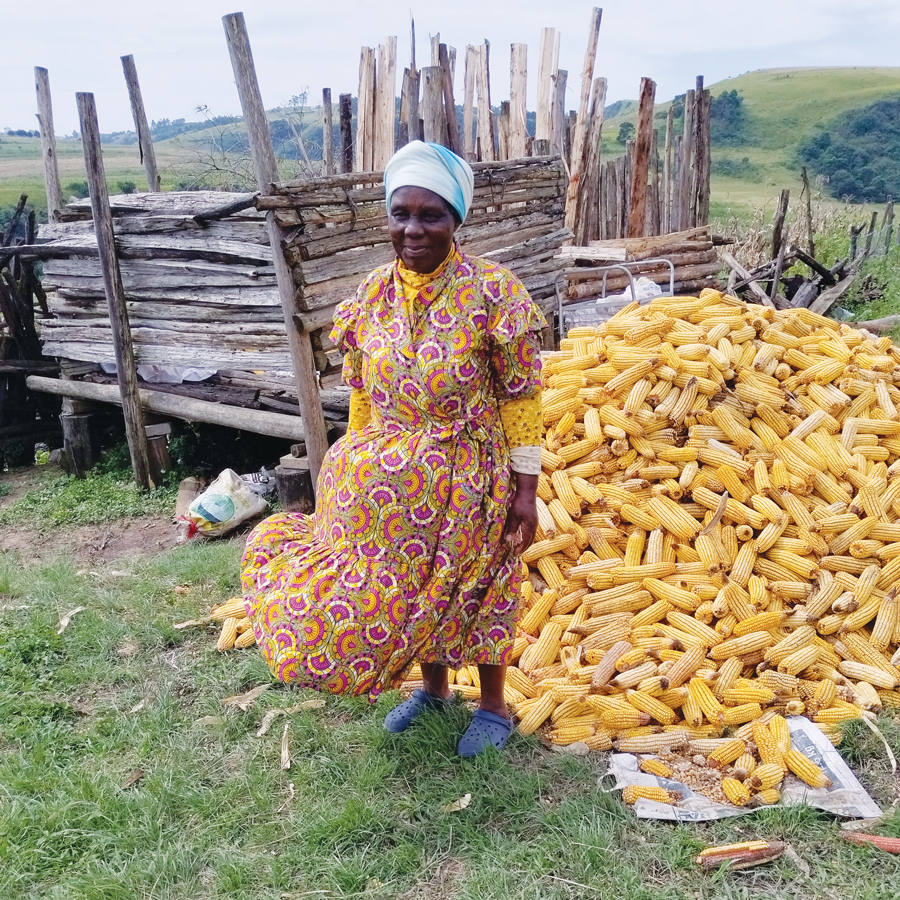
After the Ntunjini Study Group meeting, farmer Fakazile Gebhuza was visited. She is a nominee in the Subsistence Farmer of the Year category and was busy harvesting her maize. Some of the cobs were spoiled by the high rainfall. The farmer was advised to remove these cobs from the good ones and to ensure that the maize gets enough sun to dry.
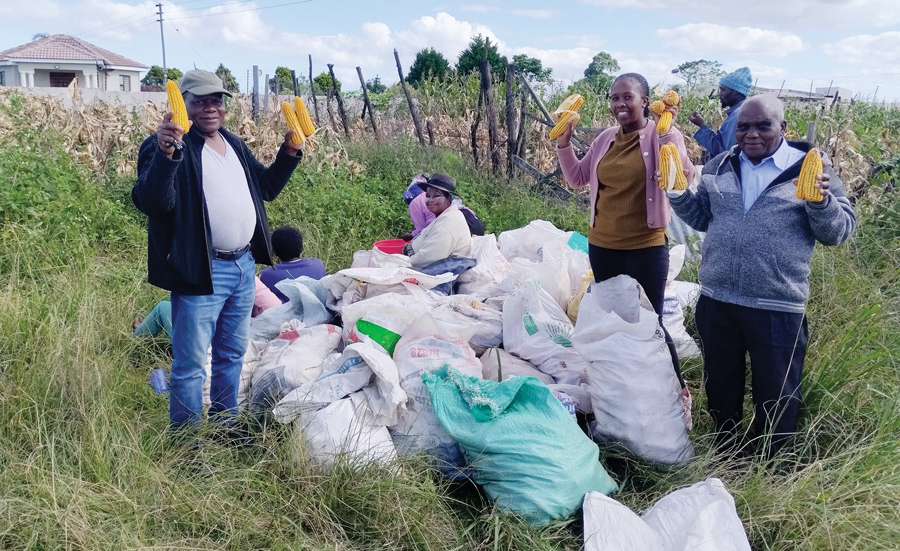
Happy farmers from the Ntunjini Study Group who received their inputs early.
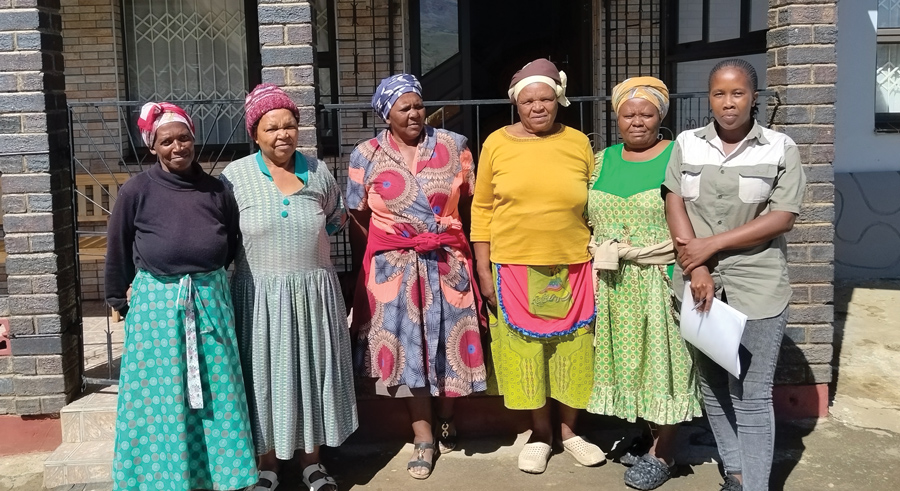
At the Siyeza ePuka Agri Study Group, Phumzile Ngcobo (right), assistant regional manager, presented a session on marketing and storage.
Just a reminder that Phahama Grain Phakama bank accounts are open for the BA deposits for the 2025/2026 planting season. Study group visits are taking place between April and July to finalise the farmer numbers.
The closing date for the BA Programme is 31 July 2025. To participate in the BA programme, you must be part of a study group and have paid your Grain SA membership fees.
Publication: July 2025
Section: Pula/Imvula